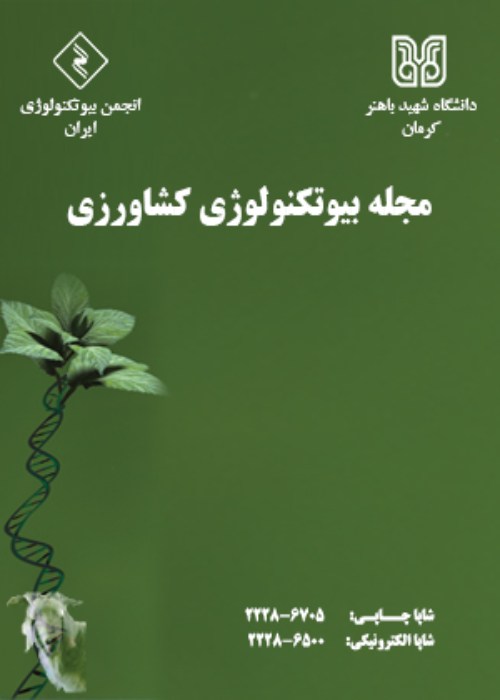Expression regulation of sucrose-phosphate phosphatase gene in bread wheat and its progenitors under salt stress
Sucrose, the final product of photosynthesis, plays important roles in growth, development, storage, signal transduction, and acclimation to environmental stresses in higher plants. Sucrose-phosphate phosphatase (SPP) catalyzes the final irreversible step in the sucrose biosynthesis pathway. In this study, the SPP orthologous genes in wheat and progenitors were selected, and the expression regulation of the orthologous SPP genes were analyzed in response to salinity stress.
Seeds of bread wheat (Triticum aestivum CV. Rooshan), durum wheat (Triticum turgidum CV. Hana), and Aegilops tauschii were provided by the Seed and Plant Improvement Institute, Karaj, Iran. In order to quantify the expression of SPP genes, qRT-PCR was performed on total RNA extracted from leaf and root tissues of control and salt-treated (NaCl 200 mM) samples. A gene tree was constructed to calculate the evolutionary and phylogenetic relationships of the SPP protein family in bread wheat and its progenitors. The possibility of post-transcriptional regulation of the SPP genes was also evaluated using the online tool psRNATarget.
The results of the phylogenetic analysis showed that 6, 4, and 2 SPP paralogous genes have evolved on chromosomes 1 and 5 of bread wheat, durum wheat, and Ae. tauschii, respectively. Additionally, We predicted 16 different microRNAs can target some of the SPP gene transcripts in bread wheat and Ae. tauschii. Gene expression results also indicated that SPP gene expression increased in the root and leaf tissues of bread wheat in response to salinity stress, while it decreased in durum wheat. The response of Ae. tauschii to salinity stress was different, with decreased expression observed in leaf tissue but increased expression in root tissue.
Post-transcriptional regulation through miRNAs can play an important role in the regulation of the complex sucrose metabolism, especially in the regulation of SPP gene expression. Gene expression results showed that under salinity stress conditions, bread wheat increases sucrose production, while in durum wheat, which is more sensitive to salinity stress, sucrose production is disrupted or decreased. This reduction in sucrose production can lead to a decrease in yield.
- حق عضویت دریافتی صرف حمایت از نشریات عضو و نگهداری، تکمیل و توسعه مگیران میشود.
- پرداخت حق اشتراک و دانلود مقالات اجازه بازنشر آن در سایر رسانههای چاپی و دیجیتال را به کاربر نمیدهد.


